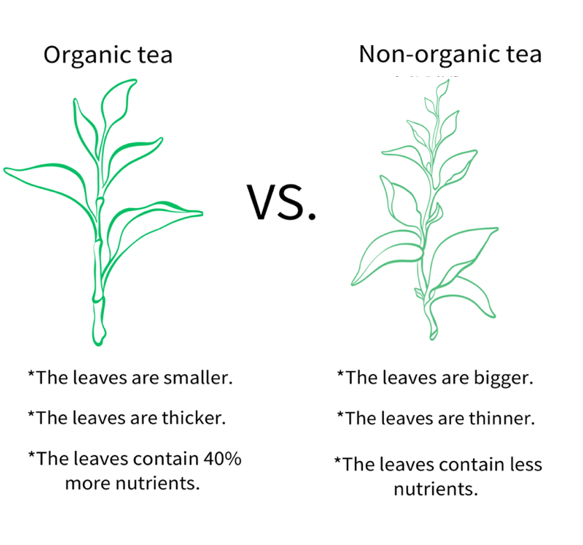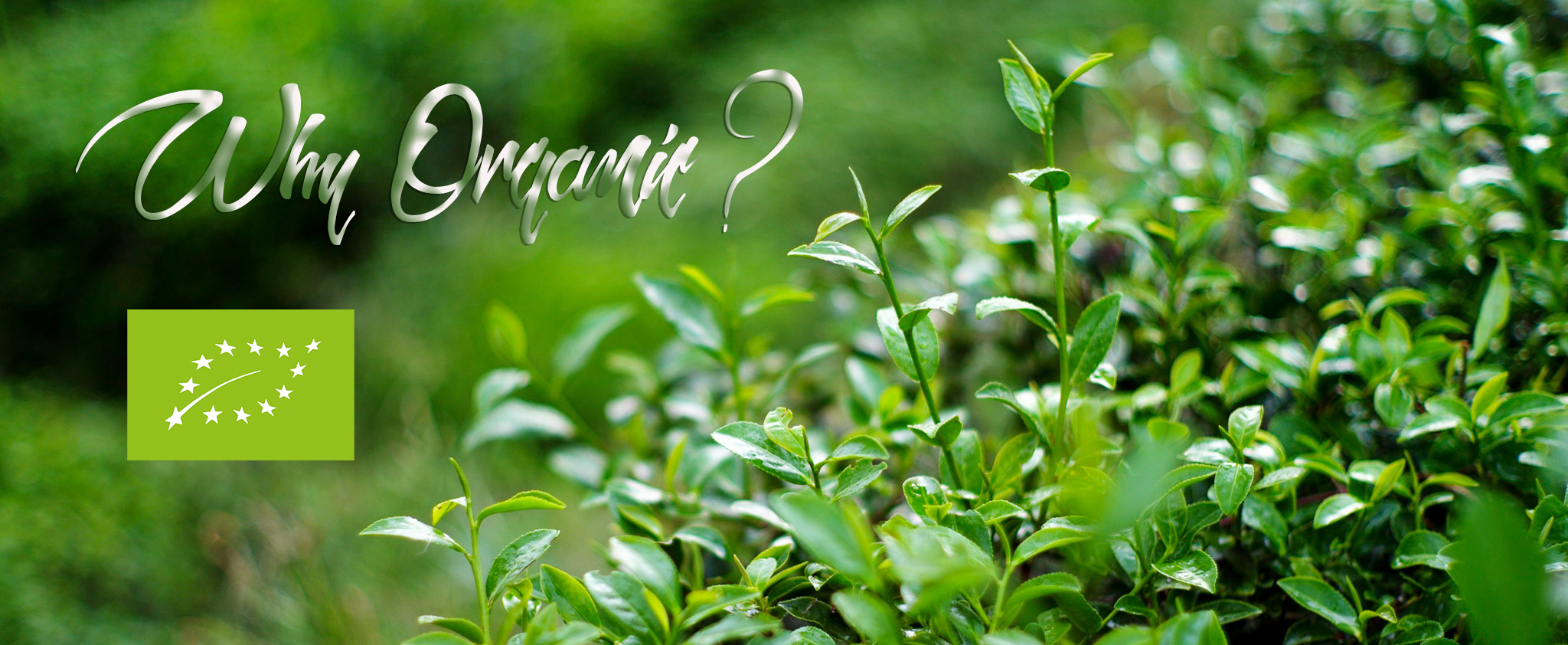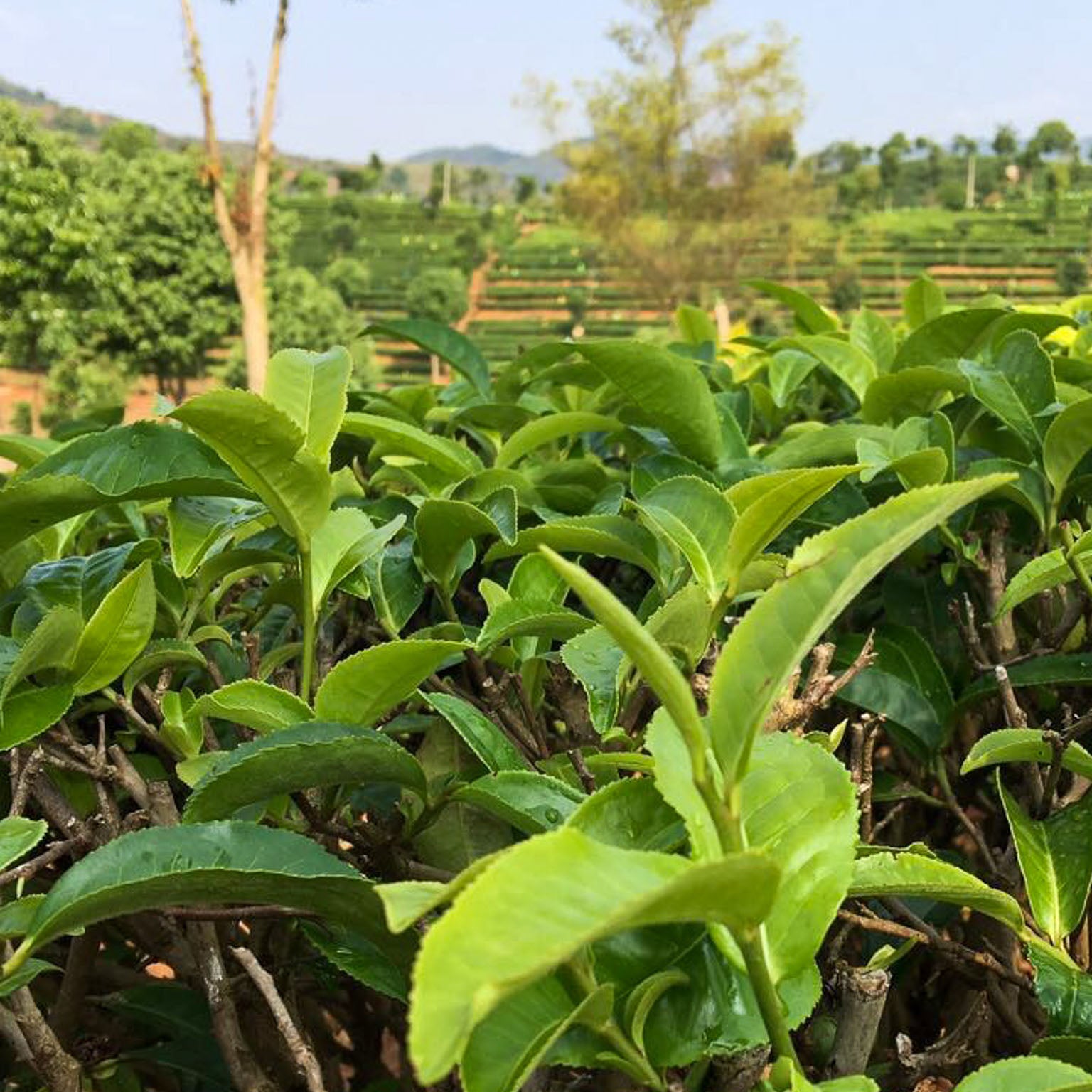What is organic tea?
To drink healthy and clean tea, the first choice must be organic tea. But what exactly is organic tea? Organic tea is grown and processed without the use of synthetic chemicals or genetically modified organisms. This means that no pesticides, chemical fertilizers, growth regulators, or synthetic food additives are used during its production.
Organic tea follows the laws of nature and ecological principles during the planting and raw material production processes. It implements agricultural technologies that are conducive to ecological balance and environmental sustainability. By adhering to these principles, organic tea not only ensures a healthier product for consumers but also protects the natural environment by reducing pollution and promoting biodiversity.
- No agricultural chemical
- No chemical fertilizer
- No pollution
- No hormone
- Non-GMO (non-Genetically Modified Organism) - Artificial Flavor free

Organic tea protects your health
Organic tea is rich in nutrients, containing tea polyphenols, catechins, amino acids, tea polysaccharides and other substances that help prevent cancer and boost immunity. Its nutritional content far exceeds that of conventional tea grown with the use of chemical fertilizers and growth hormones. Conventional tea relies on chemical fertilizers and urea, making it difficult to synthesise these beneficial substances for human health.
Organic tea does not contain pesticide residues, herbicides, artificial flavors or colors that are harmful to human health. It can effectively chelate heavy metals in the body, assist in detoxifying the liver and kidneys, and protect overall health.

Challenges growing Organic Teas
Organic tea farming in China faces several difficulties leading to a limited number of tea farmers adopting this method. One major issue is the stringent ecological environment requirements for organic tea gardens. Such gardens must be located far from urban and industrial areas, making it challenging to find suitable land. As a result, the cost of acquiring and maintaining such land is high, leading to increased expenses for the tea farmers. In addition, recruiting and retaining skilled labor for organic tea farming is difficult, as the labor force must adhere to strict organic farming practices, resulting in higher salaries and operational costs.
Another challenge is the lengthy and costly process of soil transformation required to convert a conventional tea garden into an organic one. It can take several years(3 -5 years) before the land is certified as organic, during which time the farmer faces a lack of income and must make significant investments. Moreover, the ongoing use of organic fertilizers and the restriction on chemical pesticides and herbicides limits the productivity of organic tea gardens, making it less economically viable for some farmers.
The investment calculation for the development of a tea garden base over a period of three years is a complex and multifaceted task. It involves a variety of costs including labor, land rental, infrastructure fees, management fees, as well as water and electricity expenses. The allocation of such huge manpower and material resources over this time period is a challenging undertaking that requires meticulous planning and execution.
Furthermore, after five years, the tea garden base has reached organic standards, necessitating a substantial investment in applying for organic certification. This process is not only intricate, but also requires a significant financial commitment. Additionally, there are challenges in establishing selling prices for organic tea, as consumers are often accustomed to the concept of cheap and aesthetically pleasing products. Convincing consumers to accept higher-priced organic tea can be a major hurdle due to preconceived notions about the value of organic products.
In light of these challenges, it is evident that the journey to promote and sell organic tea to consumers is indeed an arduous one. It requires not only financial investment, but also significant efforts to educate and change consumer perceptions about the value and benefits of organic tea. Overall, the journey towards promoting and understanding organic tea presents several obstacles that must be carefully navigated by tea producers.

Nutritional Values of organic teas
Belonging to the organic and healthy ethnic group entails possessing a considerable understanding and knowledge of organic culture. This knowledge is manifested in the daily choices and practices of individuals within this group. In their daily lives, they opt for organic food sources such as vegetables, rice, meat, and fruits. Additionally, they consume organic drinks like tea, which reflects their commitment to a healthy and sustainable lifestyle.
By actively participating in the consumption of organic products, members of this group inherently exhibit a strong sense of care for the environment. This choice to navigate through life with a conscious effort to opt for organic options goes hand in hand with their desire to avoid pollution and waste, thus reducing the burden on the environment and others around them. Such a commitment stems from a deep understanding of the impact that their actions have on the world around them. By aligning themselves with organic culture, these individuals actively work towards creating a healthier and more sustainable world for current and future generations.
In response to the belief that drinking organic tea would have no effect if we usually consume non-organic grains and vegetables, it is important to consider the potential benefits of organic tea in detoxifying our bodies. While it is true that our regular diet may expose us to toxins and harmful substances, the consumption of organic tea can play a crucial role in cleansing our systems and improving overall health.
Historical texts such as Shen Nong's Materia Medica and the Compendium of Materia Medica have long documented the detoxifying properties of tea. These ancient teachings have been supported by modern scientific research, including a study by the European Union which found that organic food contains significantly more nutrients and antioxidants than non-organic food. Antioxidants, which are present in higher amounts in organic foods, have been linked to a reduced risk of cancer and heart disease, making organic tea a valuable addition to our diets.
Furthermore, the richness of nutrients in organic tea is evident in its prolonged brewing capabilities. Organic tea has been observed to maintain its color and flavor after numerous brewings, indicating a higher concentration of beneficial compounds compared to conventional tea. This highlights the potential for organic tea to provide lasting health benefits and contribute to the detoxification of our bodies.

In chemical-free environment, the ecosystem develops freely.
Quality comes at a price
Food is an essential part of our lives, and it is important to understand the effort and cost that goes into producing the goods we consume. Take tea, for example. While it may seem like a good deal to purchase 1KG and get half KG for free, the old adage "quality comes at a price" rings true. Good products are often relatively expensive because farmers put in a lot of effort and cost behind the scenes. The quality of the tea will ultimately speak for itself.
Farmers deserve to receive fair compensation for their hard work. If they are only able to maintain their livelihood by selling products at low prices, they may resort to using chemical materials to achieve the fastest harvest. This results in an abundance of chemically-ridden food that can lead to various health problems in consumers.
However, the rise in popularity of organic products shows that consumers are starting to recognize the benefits of consuming goods that are produced with minimal use of chemicals. Organic tea, for example, can provide multiple benefits to our bodies. As we become more aware of the importance of healthy, high-quality food, we can make better choices as consumers and support farmers who are dedicated to producing goods that are good for both us and the environment.
Tea farming is a prevalent practice worldwide, and the demand for high-quality tea leaves continues to grow. In order to meet this demand, many tea farms rely on the use of pesticides and chemical fertilizers. The primary reason for the widespread use of these chemicals is to prevent outbreaks of pests and diseases that could potentially wipe out entire crops. Without the use of pesticides, tea plants are vulnerable to attacks from insects and other harmful organisms, while the application of chemical fertilizers helps to ensure that the plants receive sufficient nutrients for healthy growth.
While some countries may have a commitment to growing "clean" tea using only natural fertilizers such as manure and off-cut plants, with minimal use of pesticides, a base level of pesticide is still necessary for effective pest control. One common disease that tea plants are susceptible to is blister blight, which can have a devastating impact on tea crops. To prevent and control such diseases, copper fungicides are commonly used.
Why only organic teas?
We are only interested in organic tea for several reasons. Firstly, the use of toxic pesticides in non-organic tea gardens is a major concern for me. During a field trip to a tea garden, the strong and stimulating smell of chemical pesticides was utterly unacceptable. I learned that while China has banned some kind of pesticides, some tea farmers still use toxic pesticides to increase production and maximize insecticide efficiency. As a result, I became concerned about the adverse effects of consuming tea that has been treated with such harmful chemicals.
Secondly, as we observed health problems in some relatives and friends, we became more conscious of the importance of consuming natural, organic products. We believe that organic tea not only tastes better but is healthier due to the absence of harmful chemicals. Moreover, organic tea production contributes to reducing environmental pollution.
As responsible citizens of the world, we are acutely aware of the environmental pollution that is plaguing our planet. We firmly believe that each one of us has a duty to do our part in protecting the natural ecology. This conviction is what drives me to take action in my own little way. Secondly, my love for tea and the undeniable fact that it is a part of my daily routine also contributes to my motivation. We firmly believe that everyone around me should have access to safe and clean organic tea, and this belief has led me to pursue the idea of starting a real organic tea business.
With these motivations in mind, we have made the decision to operate an EU organic certified organic tea business. This ensures that the tea we provide is not only of the highest quality, but also produced in a manner that is both environmentally sustainable and socially responsible. This venture gives me a sense of joy and fulfilment, as we know that we are contributing to the preservation of the natural ecology while providing a product that brings pleasure and comfort to others, but also allows me to share my passion for organic tea with others.
Jardin Secret Organic Certification by Ecocert






